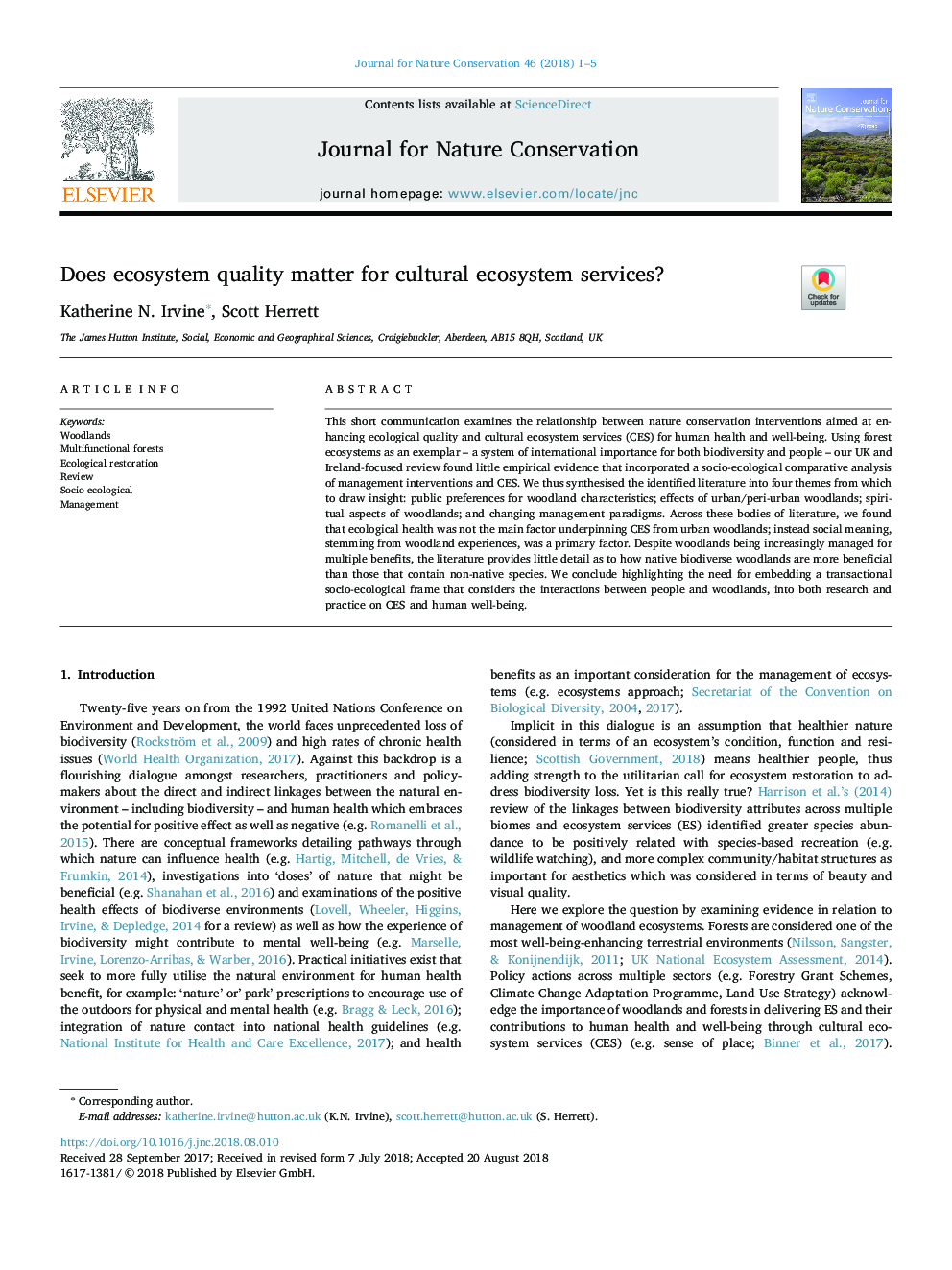| Article ID | Journal | Published Year | Pages | File Type |
|---|---|---|---|---|
| 10223377 | Journal for Nature Conservation | 2018 | 5 Pages |
Abstract
This short communication examines the relationship between nature conservation interventions aimed at enhancing ecological quality and cultural ecosystem services (CES) for human health and well-being. Using forest ecosystems as an exemplar - a system of international importance for both biodiversity and people - our UK and Ireland-focused review found little empirical evidence that incorporated a socio-ecological comparative analysis of management interventions and CES. We thus synthesised the identified literature into four themes from which to draw insight: public preferences for woodland characteristics; effects of urban/peri-urban woodlands; spiritual aspects of woodlands; and changing management paradigms. Across these bodies of literature, we found that ecological health was not the main factor underpinning CES from urban woodlands; instead social meaning, stemming from woodland experiences, was a primary factor. Despite woodlands being increasingly managed for multiple benefits, the literature provides little detail as to how native biodiverse woodlands are more beneficial than those that contain non-native species. We conclude highlighting the need for embedding a transactional socio-ecological frame that considers the interactions between people and woodlands, into both research and practice on CES and human well-being.
Related Topics
Physical Sciences and Engineering
Earth and Planetary Sciences
Earth and Planetary Sciences (General)
Authors
Katherine N. Irvine, Scott Herrett,
